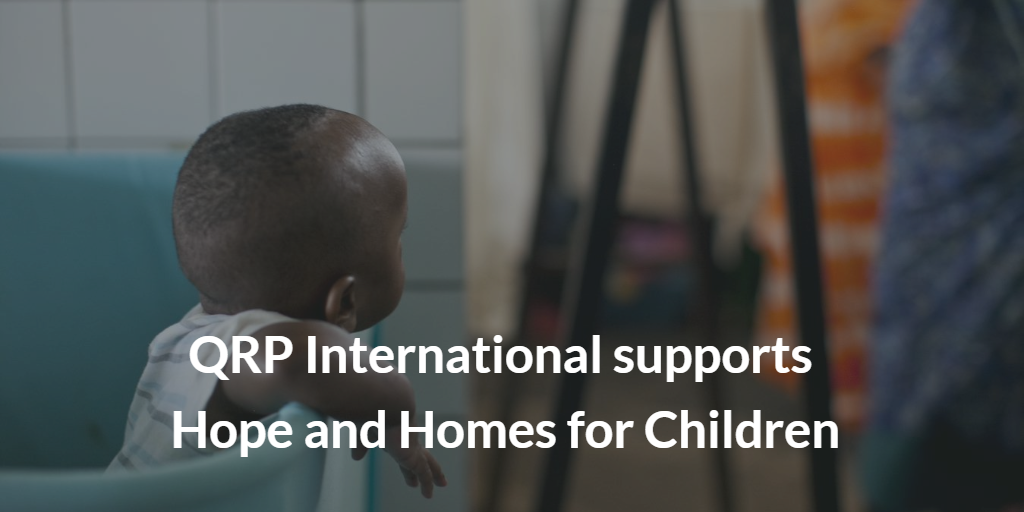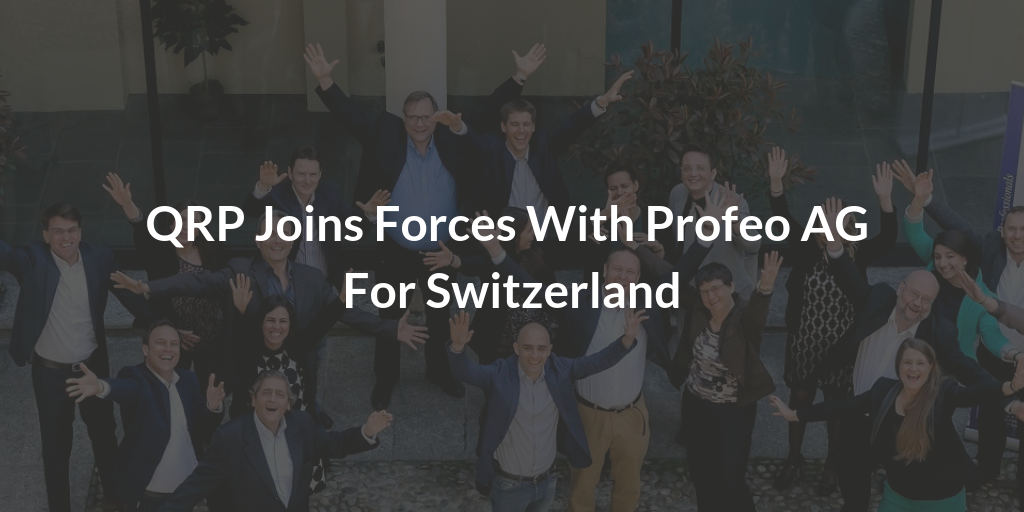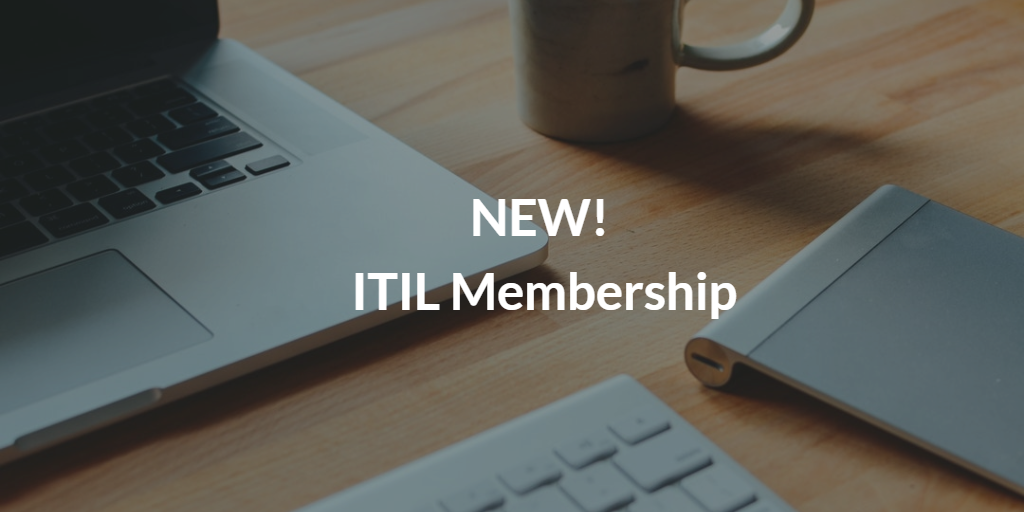News
View the latest inspiring and positive news and information about what's going on in the PM and IT world.

QRP International has a core purpose: "Developing professionals to facilitate change". We believe in change as a tool for growth and improvement, not only professionally, but also in our society. This is the reason why every year we choose to support a cause. This year we chose to support Hope and Homes for Children.
Over 8 million of children worldwide live in orphanages or other forms of institutional care. Hope and Homes for Children has a mission: to be the catalyst for the global elimination of institutional care of children and ensure that all children can grow up in lovely and safe families.
Hope and Homes for Children is working in over 30 countries to dismantle orphanage-based care systems and to find safe and loving families for children who live in orphanages. They’re also working with governments to tackle the root causes of family breakdown, and to prevent family separation. Indeed, the 80% of children confined to orphanages are not orphans: they have at least one living parent or relative but are abandoned because of poverty, disability or discrimination. With the right support, these children can join loving foster families or, if they are old enough, they can be supported to live independently.
The mission could seem impossible but it is not: since 1994, Hope and Homes for Children have transformed the lives of thousands of children by closing 109 orphanages across 9 countries.
QRP International decided to support the organization with a donation that will enable 3 vulnerable children, currently held in bleak orphanages, to start a new and better life with their birth family or with a foster family. Because all children need to live in a safe and stable environment to grow and develop their potential.
Visit their website to know their mission, stories and beautiful achievements: Hope and Homes for Children

QRP International Story: Who We Are
QRP International is a leading player in Best Practice Training in Europe. We are specialised in supporting organisations developing their personal skills and successfully implementing Best Practices.
QRP International is accredited to provide training and certification in the following Best Practice methods:- Project Management: PRINCE2, AgilePM, PRINCE2 AGILE, PMP, SCRUM and PM²
- Programme Management: MSP
- Portfolio, Programme and Project Office: P3O
- Management of Portfolios: MoP
- IT Governance & Service Management: ITIL
- Change Management
"QRP aims to be at the forefront of change management. As our core purpose says: we develop professionals to facilitate change. Together with the historical leader in project management in Switzerland PROFEO AG we are pleased to launch our services with a completely new website under a new name PROFEO-QRP. Having all the 3 language capabilities needed in the house with qualified trainers and consultants we are ready to serve the market with the major methods to manage change: from AgilePM to PMP and from PRINCE2 to ITIL. Our collaboration with PROFEO AG will extend to a wider offering of consultancy services in 2019. Please enjoy our wide range of courses under PROFEO-QRP in your language of choice. Happy learning!
Our Mission: Why Training in Project Management?
Our mission is to support individuals and organizations in the development of skills for implementation of Project, Programme, Portfolio and Change Management. For this purpose, we provide high quality in all of our services: from the analysis of clients business needs to the tailoring of the services offered. Our quality is guaranteed by our experience in the industry: with 18 years of activity we know what is required to make training successful. But the key factor to our success is our people: our train-the-trainer programme and extensive internal training programs make our staff highly skilled and our team deeply motivated. Working at QRP means for us to help professionals build news opportunity. We have passion for change and improvement. Our mission statement is ‘helping companies to get better communication across departments, to save time and money throughout the project’s life and to give agility to processes’. We believe that companies could improve their overall business performance thanks to Training, Certification and Consultancy services in Best Practice. We’ve helped thousands of professionals improving their skills. We can help you too.Our Work: How Do We Help Professionals to Develop?
QRP goal is to provide information and to create awareness on the importance of setting a strong method for your projects and portfolio. How? We organize free events where professionals can network with peers, share lessons and experiences and ask finally their questions to the experts from the field. We strive to provide you with the most updated information about Project, Programme and Portfolio management. We would keep you update with the latest market trends and give you the big picture of the PPM world. MORE INFORMATION Do you believe that we can help you improving your career or the project’s life of your companies? Please contact-us and we will reply you as soon as possible.
What is Agile Project Management?
Agile Project Management (AgilePM) is an iterative approach to planning and guiding project processes. At the core of agile is the requirement to exhibit central values and behaviors of trust, flexibility, empowerment, and collaboration. Agile project methodology breaks down projects into small pieces that are completed in work sessions that run from the design phase to testing and quality assurance. These sessions are often called sprints: sprints are generally short, running over days or weeks; they're typically two to four weeks long.Does Agile have a project manager?
The role of Project Manager tends to be quite different on agile projects: it is the team member who deals with problems and handles interruptions to allow the other team members to concentrate on producing the work. So agile projects need documentation, reviews and processes just as traditional projects do to meet requirements, manage costs and schedules, deliver benefits and avoid scope creep; agile simply does not place as much emphasis on highly detailed documentation and does not expect to fully understand the requirements before work can begin. Instead, it emphasizes the importance of delivering a working product as something tangible for the client that can then be refined until it fulfills the client's needs. The key measure of project progress is this series of working deliverables.Intro to Agile methods
This 1-hour webinar, followed by almost 100 professionals from all over Europe, will introduce you to the different agile methods, the principles of the AgilePM approach and the tools needed to manage projects in an Agile way. STRUCTURE OF THE WEBINAR-
- The "Agile Manifesto": philosophy, principles, behaviors
- Intro to the most known and used agile PRACTICES: MoSCoW, Time Boxing, Iterative Development, Daily stand up meetings, etc..
- Intro to the most known and used agile TOOLS: Burn charts, Kanban, User stories...
- Intro to different agile APPROACHES: Scrum, Lean, XP, AgilePM, AgileBA, DevOps, SAFe ...
- Overview of Agile Project Management (AgilePM): roles, responsibilities, principles, timeboxing ...
- Q&A Session

"Following feedback from ATOs and end learners, we are reinforcing the importance of, and our commitment to, professional development. Professional development is core to our businesses and we would like to work closer with our training partners to use Membership as a platform to enhance their wider offering."
What is included in the ITIL Membership?
ITIL Membership includes toolkits, templates, white papers as well as guidance to support an end learner working through the portfolio.How can you claim their ITIL Membership subscription?
Every candidate that earns a new ITIL Foundation certificate from 1 January 2018 will be contacted by AXELOS to activate their subscription. Candidates will be invited to claim a digital badge that links to their ITIL Foundation certification.Do you know? A new update for ITSM: ITIL 4!
ITIL 2011 framework and best practices have been a powerful tool for organizations to maintain and improve their it service management for decades. However, two of the biggest criticisms of ITIL v3 have been its relationship with the ITSM community and failure to keep up with recent trends in software development and IT operations. The update will include practical guidance on how to shape and tailor your IT management strategy in the increasingly complex modern environment.Want to know more?
Download now our last document about this matters, it's free! ITIL 4: all the answers to the most common questions
"The world is going digital and so is QRP. As one of the first ATOs we made a transition to fully online examinations in all cases and it did not stop here. The launch of this new e-learning Package is the start of a new era for QRP as we now offer complete e-learning solutions without any paper involved. QRP strives to be a leader in flexible learning solutions for all. Developing professionals to facilitate change: less paper, less travel , more interaction, more sustainability. With this development we are pleased to get the digitalisation support a more sustainable planet too. I can't wait to launch the various local language versions as soon as the new translated manuals are out! This way we can bring learning to even more countries in the World."
What’s in Prince2 online?
The e-learning is broken into 20 bite sized lessons which include videos, quizzes and a collection of interactive readings that provide more in-depth detail on the PRINCE2 method. In order to create knowledge retention we have included the Q-Trainer functionality - it is a tool that repeats questions in such a way that the knowledge will be stored in your long-term memory. All those items combined with the 2 PRINCE2 Foundation exams simulator and the online tutor support ensure that you gain the required level of knowledge to obtain the PRINCE2 Foundation Certification.Online Prince2 Foundation & Practitioner Exam included
The PRINCE2 Foundation & Practitioner exam will take place online thanks to the remote ProctorU technology which gives you the freedom to take your exams at a time and location convenient for you, using a webcam and a reliable high-speed connection.PRINCE2 e-learning course: test your knowledge
With an ever growing database of test questions and 2 complete PRINCE2 Foundation mock exams, you are assured all aspect will be covered and all subjects continuously tested against your knowledge to ensure the best possible preparation towards sitting the official PRINCE2 Foundation exam. In the PRINCE2 Practitioner online course, there are 2 project Scenario exercises that will prepare you for the practitioner exam.Interactivity Readings about PRINCE2 method
Our experienced PRINCE2 experts explain the method through a wide range of video, interactive readings and practice exam questions, which will help you to not only know PRINCE2 and obtain the PRINCE2 Foundation & PRINCE2 Practitioner certification, but also apply it for your projects. The course has been designed to ensure that it provides an interactive and engaging explanation of the PRINCE2 method.Access the PRINCE2 online course from all types of devices
Anytime, anywhere… any device: you can access the PRINCE2 online course from all types of devices (laptops, smartphones or tablets), wherever you want and whenever you want, and without having to take time off work. So you can learn at a pace that suits you, at home, at work or on the go! Learn more about the PRINCE2 Foundation & Practitioner online course Buy now your PRINCE2 Foundation & Practitioner Elearning Package Got questions? Contact us and we’ll help you choose the perfect training solution to suit your needs
- 12-13-14-15-16 November, Luxembourg - REGISTER!







